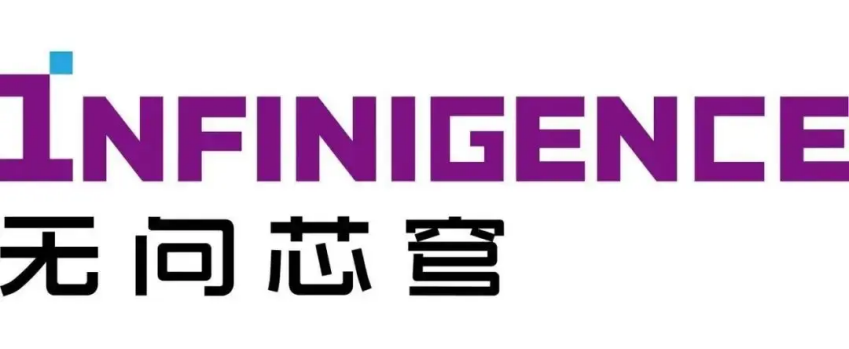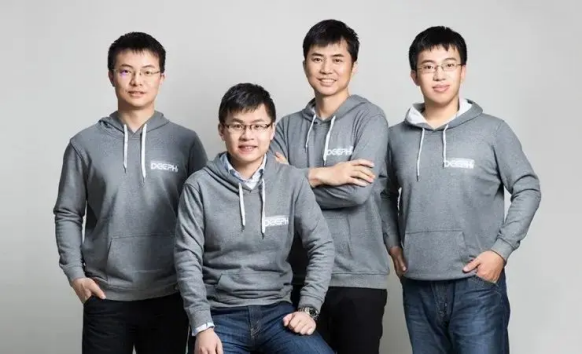Author: Xiao Yan
Editor: Caiyun
Recently, a company called "Shanghai Wuwen Xinquan Intelligent Technology Co., Ltd." (hereinafter referred to as Wuwen Xinquan) has undergone changes in its business information, adding multiple shareholders, which has attracted great attention.
Wuwen Xinquan itself has been low-key and not well known to outsiders. The reason for the widespread attention is that its new shareholders include many "big names": such as Baidu's Beijing Baidu Netcom Technology Co., Ltd., Tencent's wholly-owned Guangxi Tencent Entrepreneurship Investment Co., Ltd., and Beijing Zhipu Huazhang Technology Co., Ltd. At the same time, there have also been additions to the main personnel.
Without exception, these companies are currently the most prominent technology giants or startups in China. For these giants to invest in a startup chip company is enough to show that this company has its own unique features.

Wuwen Xinquan's Background: From the "Tsinghua Faction"
According to the information displayed on Tianyancha, Wuwen Xinquan was established in May 2023 in Shanghai, with Zeng Shulin as the legal representative. It is a company mainly engaged in software and information technology services, with business scope including artificial intelligence theory and algorithm software development, basic software development for artificial intelligence, and application software development for artificial intelligence.
Public information shows that Zeng Shulin graduated from the Department of Electronic Engineering at Tsinghua University in 2018 and then continued to pursue a doctoral degree, with a major research focus on collaborative design of hardware and software, deep learning accelerators, and FPGA (Field-Programmable Gate Array) hardware virtualization. Zeng Shulin's mentor is Professor Wang Yu, the department head of the Department of Electronic Engineering at Tsinghua University.
Wang Yu is a well-known figure in the domestic chip field. He has won the best paper award multiple times at top conferences and has been cited more than 17,000 times on Google Scholar. Of particular note is that Wang Yu completed his bachelor's, master's, and doctoral degrees at Tsinghua University, and in 2007, he stayed at the university to teach, focusing on research in intelligent chips, efficient circuits, and systems. This is also the reason why Wuwen Xinquan has a strong Tsinghua background.

(Right second is Wang Yu)
Wang Yu's involvement seems to be the most confident endorsement for Wuwen Xinquan.
Many people believe that Wang Yu is the biggest confidence booster for Wuwen Xinquan, and there are reasons for this.
In addition to the academic field, Wang Yu has also made significant contributions in the industry and is a serial entrepreneur in the chip field. In January 2016, a deep learning processor project led by Professor Wang Yu was demonstrated and supported by the School of Electronic Information at Tsinghua University. Subsequently, the project team obtained shares through intellectual property transformation and established the AI chip company Deepwise Technology for industrial operation. Wang Yu's proud students, Yao Song and Shan Yi, are founding members of Deepwise Technology.
Deepwise Technology has launched multiple core products, including face recognition modules, video structural solutions, and deep learning chips. It has received multiple rounds of financing, with investors including GGV Capital, Matrix Partners China, Sequoia Capital, Samsung Ventures, and other well-known institutions.
In 2018, Deepwise Technology was acquired by Xilinx, the world's largest FPGA manufacturer, and later Xilinx was acquired by the American chip giant AMD. Therefore, Deepwise Technology has become the most successful AI chip company in commercial development in China.
This year is the year of large-scale AI models. Perhaps seeing more possibilities and opportunities, Wang Yu chose to start a business again with his students and co-founded Wuwen Xinquan.
So, what is the main business of Wuwen Xinquan?
According to the introduction, based on the Wuqiong large model energy efficiency optimization toolkit, Wuwen Xinquan integrates domestic chip computing power to build a unified computing power base. In the decentralized industry landscape of diverse AI large models and computing power, it constructs an intermediate layer. Through cross-layer collaborative optimization of the model layer, system layer, and hardware layer, it leverages the efficiency of various computing hardware to help the application of large models land.
In summary, Wuwen Xinquan will mainly provide users with intelligent computing cloud services, integrated intelligent computing machines, large model energy efficiency optimization toolkits, and other solutions. At that time, Wuwen Xinquan will focus on solving the four major needs of long text or large input problems (for example, supporting models with 2K tokens in the past, enabling them to support 32K tokens through fast inference and training, which can be used for professional long text information retrieval, generation, conference chat assistants, and other applications); improving the cost-effectiveness of AI services; vertical domain adaptation; and one-click deployment.
Once formed, Wuwen Xinquan can greatly reduce the manpower cost of large models and can be deployed in various scenarios.
Developing large models requires high computing power, and investing in startup chip companies may be the most cost-effective way.
As of now, Wuwen Xinquan has not officially announced its financing situation, but from the background of its investors, there is no doubt about one thing. Wuwen Xinquan has attracted the attention of many top institutions.
It is understood that since its establishment, Wuwen Xinquan has undergone three rounds of shareholder changes:
In June of this year, Sequoia invested in Beijing Wuwen Xinquan through its subsidiary, Sequoia (Ningbo) Technology Co., Ltd. (hereinafter referred to as "Sequoia (Ningbo)").
In September of this year, Sequoia (Ningbo) once again invested in Shanghai Wuwen Xinquan. In addition, Cao Xi from Lisi Capital, Tsinghua's Infinite Fund, GGV Capital, and Xuhui Capital also made appearances.
The latest shareholding situation shows that Sequoia holds approximately 10.722% of Wuwen Xinquan, making it the largest external institutional shareholder; Cao Xi personally holds approximately 3.571% of Wuwen Xinquan's shares. In addition, both Sequoia and Cao Xi have seats on Wuwen Xinquan's board of directors. In addition, Tencent, Baidu, Matrix Partners, and ZhenFund each hold a 1.952% stake and ultimate beneficial ownership of Wuwen Xinquan; Zhipu AI holds a 0.651% stake and ultimate beneficial ownership of Wuwen Xinquan.
It is well known that the development and optimization of large models highly depend on computing power resources. It is precisely because of this that the rise of large models has driven the explosion of the chip race. In the future competition in the AI field, it is very likely that there will be a situation of "those who obtain the chips will obtain the world."
Chips are expensive but also very important. In this rapidly growing demand, both domestic and foreign technology giants and large model startups are developing AI chips to enhance their capabilities or increase their investment in the chip field. For example, at Microsoft's annual IT professional and developer conference Ignite in November, Microsoft launched two self-developed chips, the cloud AI chip Microsoft Azure Maia 100 and the server CPU Microsoft Azure Cobalt 100.
Similarly, the AI powerhouse OpenAI is also making efforts to reduce its reliance on NVIDIA chips and solve the problem of high computing costs. According to recent reports from foreign media, OpenAI signed a letter of intent with the chip startup Rain AI in 2019 and will spend $51 million to purchase these chips once they are listed.
Focusing on China, the logic and story are the same. Many internet giants are actively transforming and paying attention to the chip issue in order to not fall behind in the AI race. Investing in startup chip companies is like taking a reassurance pill in advance, and it seems to be the most cost-effective approach.
In July of this year, Wang Yu once said, "Now everyone is doing all kinds of very powerful chips, but how to better deploy models on these chips, so that application developers and others in the field do not incur additional costs, can greatly promote the development of large models." What he mentioned is exactly the pain points and difficulties that major institutions want to solve.
Let's see if this rapidly rising and highly favored Wuwen Xinquan can push the development of large model facilities into various industries. We look forward to it together.
免责声明:本文章仅代表作者个人观点,不代表本平台的立场和观点。本文章仅供信息分享,不构成对任何人的任何投资建议。用户与作者之间的任何争议,与本平台无关。如网页中刊载的文章或图片涉及侵权,请提供相关的权利证明和身份证明发送邮件到support@aicoin.com,本平台相关工作人员将会进行核查。




